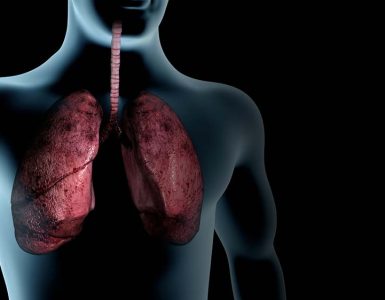Are you from those who blame extra pounds on slow metabolism as you age? Not so fast.
A new international study counters the common belief that our metabolism inevitably declines during our adult lives. Well, not until we’re in our 60s, anyway.
The findings appear in the journal Science.
“As we age, there are a lot of physiological changes that occur in the phases of our life such as during puberty and in menopause. What’s odd is that the timing of our ‘metabolic life stages’ doesn’t appear to match the markers we associate with growing up and getting older,” said study co-author Jennifer Rood, Ph.D., Associate Executive Director for Cores and Resources at Pennington Biomedical Research Center. This means that the thickening waistlines associated with middle age might not all be down to a slow metabolic rate. Because, contrary to the popular belief, the metabolic rate peaks in infancy, and this rate increases a little more during teenage than in middle-ages.
According to the findings, energy expenditure (adjusted for weight) at birth is similar to adults’ energy expenditure. It rapidly increases during infancy and childhood before declining through adolescence. Through adulthood, energy expenditure plateaus – remaining stable, even during pregnancy. Finally, the second phase of decline occurs from roughly 60 years to death.
Pontzer and an international team of scientists analyzed the average calories burned by more than 6,600 people ranging from one week old to age 95 as they went about their daily lives in 29 countries worldwide.
They found that in young people that metabolism slows down only 3% till the age reaches 20, and then from the 20s to 50s, the metabolic rate seems to be the most stable. During the 60s, the metabolisms seem to slow down by 0.7% a year, and by the 90s a person needs 26% fewer calories than someone in the middle-age. During the first 12 months of life, a child consumes more calories as they are growing faster than an adult.According to Pontzer”Something is happening inside a baby’s cells to make them more active, and we don’t know what those processes are yet.”
To calculate the essential calories the team used the ‘doubly labeled water method, which is a precise and thorough technique. They also used large and broad samples therefore, the study gives a better idea about metabolic changes. Though all the changes are still not clear, at least the changes are clear to observe.
Herman Pontzer, an evolutionary anthropologist at Duke University, argues that human metabolism has evolved to the point where how we eat and expend our calories is more important than all of our collective obsession with what to eat.
Aging goes hand in hand with so many other physiological changes that it has been difficult to parse what drives the shifts in energy expenditure. But the new research supports the idea that it’s more than age-related changes in lifestyle or body composition.
“This study shows that the work cells do changes throughout the lifespan in ways we couldn’t fully appreciate before. But massive data sets like the one we collaborated on allow us to answer questions we couldn’t address,” said Dr. Ravussin of Pennington Biomedical Research Center.
















Add comment